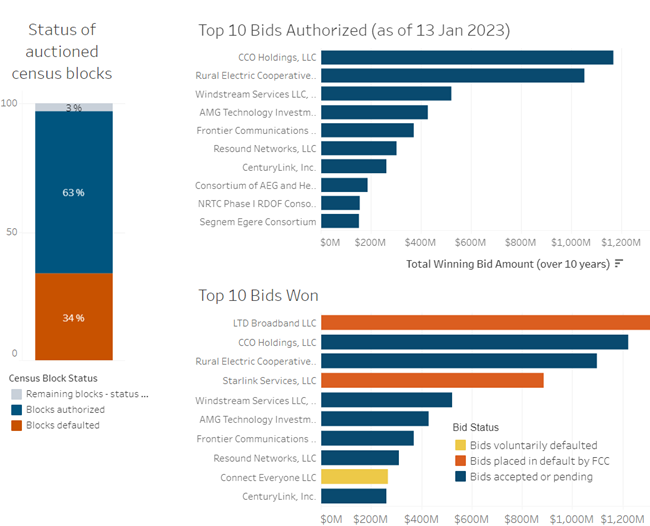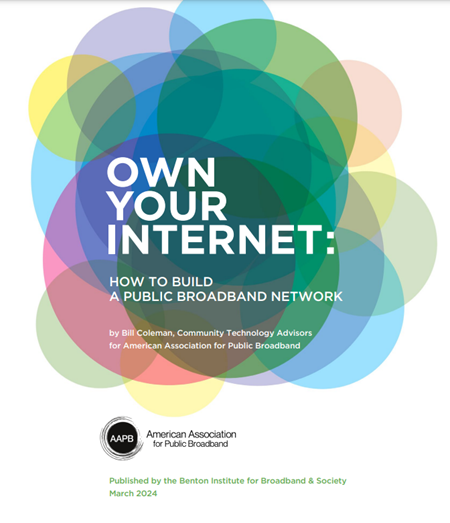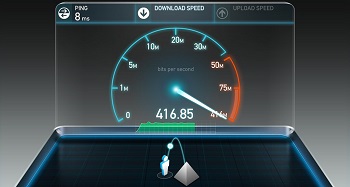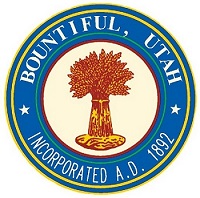
Fast, affordable Internet access for all.

The Rural Digital Opportunity Fund (RDOF) was supposed to drive affordable fiber into vast swaths of long-underserved parts of rural America. And while the FCC administered program accomplished some of that goal, a multitude of problems have plagued the program since its inception, putting both current and future broadband funding opportunities at risk.
The $20.4 billion RDOF program was created in 2019 by the Trump FCC as a way to shore up affordable broadband access in traditionally unserved rural U.S. markets.
The money was to be doled out via reverse auction in several phases, with winners chosen based on having the maximum impact for minimum projected cost.
During phase one of the program, the FCC stated that 180 bidders won $9.2 billion over 10 years to provide broadband to 5.2 million locations across 49 states and the Commonwealth of the Northern Mariana Islands.
But, according to ILSR data, roughly 34 percent of census blocks that won RDOF funding–more than $3 billion in awards – are now in default. All told, 287,322 census blocks were defaulted on by more than 121 providers as of December 2023.

The defaults are only one part of a larger problem: namely that many communities bogged down in RDOF program dysfunction may risk losing out on the historic amount of federal funding to build modern broadband networks (BEAD) made possible by the 2021 bipartisan infrastructure law.
One Big Giant Mess
More cities and towns across the U.S. are exploring municipal broadband as an increasingly attractive and effective approach to bring ubiquitous, and affordable, high-speed Internet to its residents and businesses.
Now, a new handbook has been published that is tailored to guide local officials in navigating the logistical, technical, financial, and political challenges along the way.
Hot off the presses this week comes “Own Your Internet: How To Build A Public Broadband Network” – a project of the American Association for Public Broadband (AAPB), published in partnership with the Benton Institute for Broadband & Society.

“This handbook is a key part of AAPB's strategy to double the number of public networks in the next five years, supporting communities in leveraging these networks for economic development, smart city initiatives, and attracting new residents," AAPB Executive Director Gigi Sohn said in announcing the handbook release.
Benton Executive Director Adrianne B. Furniss said the collaboration in publishing the guide made sense because “every community has a stake in this broadband moment—and they must have the tools they need to decide how they will meet their connectivity needs. We trust that this handbook is one of many tools communities will use to assess their situation and plan for a connected future.”
In January, we released our new census of municipal networks in the United States for 2024, and the significant growth that we've seen over the last two years as more and more cities commit to building Internet infrastructure to add new tools for their local government, incentivize new economic development, and improve connectivity for households.
The trend has not gone unnoticed by the monopoly players and their allies; we've seen new dark-money campaigns on both the East Coast and in the west, as astroturf campaigns and misinformation efforts have increased.
A new short documentary by Light Reading does a great job of outlining the stakes for local governments, residents stuck on poor connections, and the incumbents as the wave of municipal networks grows. Featuring the network in Loveland, Colorado and context by advocates like the American Association for Public Broadband (AAPB) Executive Director Gigi Sohn and Washington State Representative Drew Hansen, it's well worth watching.

Join us Wednesday, December 13th at 2pm ET for the latest episode of the Connect This! Show. Co-hosts Christopher Mitchell (ILSR) and Travis Carter (USI Fiber) will be joined by regular guests Doug Dawson (CCG Consulting) and Kim McKinley (UTOPIA Fiber). They'll talk about what we saw in 2023, whether there's hope for an ACP renewal (it doesn't look good), why there's so much unused capacity in government-built fiber networks today, and special guest Gigi Sohn (American Association for Public Broadband) joins to talk some more about the recent anti-municipal network dark money campaign that has inexplicably come out of the woodwork.
Email us at broadband@communitynets.org with feedback and ideas for the show.
Subscribe to the show using this feed or find it on the Connect This! page, and watch on LinkedIn, on YouTube Live, on Facebook live, or below.
A massive coalition of more than 300 broadband policy experts and organizations have written a letter to the U.S. government, warning that smaller broadband providers, nonprofits, and municipalities will be elbowed out of an historic $42.45 billion broadband grant program without some notable changes to program rules.
At the heart of their concerns sits the Broadband Equity Access and Deployment (BEAD) program, made possible by the recently passed infrastructure bill, and administered by the National Telecommunications and Information Administration (NTIA). The grant program is a once-in-a-lifetime opportunity to put a significant dent in America’s longstanding digital divide.
But BEAD program rules currently require grant recipients to obtain a letter of credit (LOC) from a bank, collateralized by cash or cash-equivalent. They also require grant winners to provide "matching funds of not less than 25 percent of project costs," though the latter restriction can be waived in some high deployment cost areas.
While the restrictions were intended to reduce the risk of project failure (a touchy subject for the government in the wake of problems with the FCC’s RDOF program), they require grant recipients to lock away vast and untouchable sums of capital for the duration of any broadband build, most of which last several years.
*In partnership with Broadband Breakfast, we occasionally republish each other's content. The following Broadband Breakfast report was originally published here.
The American Association for Public Broadband is calling for industry help in creating a handbook that helps communities examine their option to create and maintain public broadband networks.
The handbook will be a “hands-on, high-level resource for moving through the entire process including getting started, building community support, technology and business case analysis, role of partners and finance,” said Gigi Sohn, executive director at AAPB.
Sohn asked for leaders for public broadband networks, including both government-owned and cooperatives to complete a public broadband inventory. AAPB will sort through the submissions and select folks to interview for more details.
The inventory asks for network elements, public benefits of the network, what financing has been used to build and operate the network, among other questions. Respondents can indicate whether the data in the survey is available to be publicly released or not.
The AAPB will consider how it can fully capture value from this inventory and may decide to include all or much of it online in a database.
Responses are required by Friday, September 8, 2023.
Vendors, consultants, and other leaders in public broadband are invited to share the survey with those that are eligible to respond.

May 2022 witnessed something remarkable: the birth of a new nonprofit advocacy organization whose sole purpose was to speak up for the hundreds of communities that have built municipal broadband networks, and the thousands more that want to but don't know where to start. Now, the American Association for Public Broadband has named as its Executive Director as Gigi Sohn, former Biden nominee to the Federal Communications Commission. And she's ready to get to work.
Gigi joins Christopher on the podcast this week to talk about standing up support systems to promote and defend community-driven models to double the number of municipal systems in the next five years - including providing resources and countering dark-money astroturf campaigns - while also making sure the Internet stays as open and equitable as possible, and not squandering the promise of BEAD.
This show is 46 minutes long and can be played on this page or via Apple Podcasts or the tool of your choice using this feed.
Transcript below.
We want your feedback and suggestions for the show-please e-mail us or leave a comment below.
Listen to other episodes here or view all episodes in our index. See other podcasts from the Institute for Local Self-Reliance here.
Thanks to Arne Huseby for the music. The song is Warm Duck Shuffle and is licensed under a Creative Commons Attribution (3.0) license.
In this week’s round-up of broadband news, we culled three stories we think are worth reading.
How Much is Fast Enough?
The first is a story from Ars Technica – FCC chair: Speed standard of 25Mbps down, 3Mbps up isn’t good enough anymore – written by veteran IT reporter Jon Brodkin.
For years now, broadband-for-all advocates have lamented the FCC’s minimum broadband speed standard of 25 Megabits per second (Mbps) download and 3 Mbps upload as being laughably antiquated. Indeed, it’s been almost three years since we made the case for Why 25/3 Broadband Is Not Sufficient, though it was outdated long before then.

But as Brodkin reported this week, the FCC’s minimum speed standard “could finally change under Chairwoman Jessica Rosenworcel, who is proposing a fixed broadband standard of 100Mbps downloads and 20Mbps uploads along with a goal of bringing affordable service at those speeds to all Americans.”
Under Rosenworcel’s plan, the FCC would look at availability, speeds, and prices to determine whether the agency should take regulatory actions under Section 706 of the Telecommunications Act, which requires the FCC to determine if high-speed Internet access is being deployed "on a reasonable and timely basis" to all Americans.
Bountiful, Utah officials and community broadband advocates are breathing a sigh of relief as the Utah Taxpayers Association’s “Gather Utah” petition to stop the city from building an open-access network in partnership with UTOPIA Fiber fell short.

This past Friday was the deadline for “Gather Utah” to collect enough signatures for a petition that would have forced a citywide vote on the $48 million in revenue bonds authorized in May by city councilors to fund network construction.
In a press statement, City Manager Gary Hill said: “hired signature gatherers ultimately failed to collect enough signatures from registered voters to advance the opposition campaign.”
Bountiful Mayor Kendalyn Harris added:
“Bountiful is a unique city. Our residents started this process. They organized a ‘Fiber for Bountiful’ campaign that led to a thorough consideration of many options. We now look forward to offering a vital service to residents and businesses in an increasingly digital world.”
Now, after three years of study and more than two dozen public meetings, Bountiful Fiber will begin construction next month. As we previously reported, the city-owned fiber optic network will provide gigabit speeds to residents and businesses who subscribe for service.
Earlier this month American Association for Public Broadband (AAPB) President Gigi Sohn wrote an op-ed in the Salt Lake Tribune about how the “Gather Utah” campaign (backed by the cable industry) tried to derail the city’s project. After news of the petition failure, Sohn said:
Now that there’s broad consensus high-speed Internet connectivity should be universally accessible, there’s no shortage of broadband news/content floating around out there.
There’s the wheat (more truthful, useful, and informative stuff); the chafe (a mundane grain of truth buried under a steaming pile of bs), and a vast spectrum of perspectives in between.
In this new space we will highlight insightful news stories, blog posts, podcasts, or videos we’ve come across over the past week or so – with an eye to separate the signal from the noise.
Downloading now …
What Happened to Gigi?
While the FCC has been defanged in many ways, the agency is still at the center of our shared telecommunication ecosystem. So when President Biden nominated Gigi Sohn to serve as the fifth and final commissioner to break the 2-2 partisan deadlock at the agency, numerous consumer and public interest groups were ecstatic. The nation’s telecommunication workers backed her nomination. She even had the respect and quiet support of a number of conservative lawmakers.
But her nomination was sunk by a vicious smear campaign, which led her to withdraw herself from consideration in March.
At the Broadband Communities Summit in May she described the process both like being put in a “washing machine full of rocks” and going through “a 16 month proctology exam.”